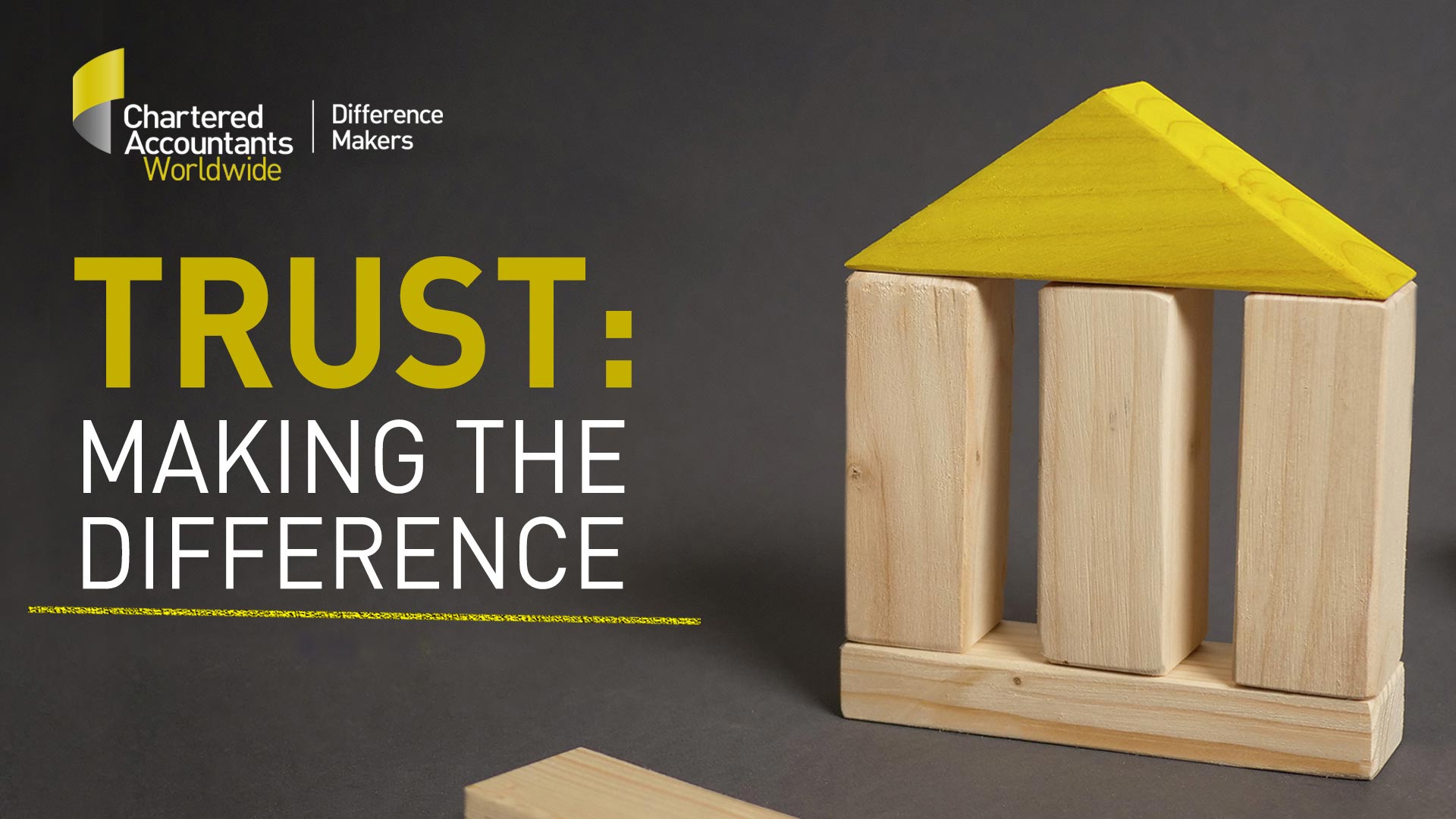Inclusive Leadership To Drive DEI Efforts

TAKEAWAYS
- Diversity, equity and inclusion (DEI) efforts can promote innovation, talent attraction and retention, and performance.
- A successful DEI strategy must be holistic, and encompass the people, processes, programmes and policies.
- To truly transition into a diverse and inclusive workplace, there must be people to lead the strategy at every level of the organisation.
It is worth reiterating that diversity, equity, and inclusion (DEI) are good for business, especially for firms in the professional services sector. The need for DEI grows more compelling with the constant stream of research studies that indicates huge benefits in promoting and supporting a diverse and inclusive workplace. However, building a diverse and inclusive workplace is easier said than done.
Organisations should first begin by eliminating bias at a systemic level. Efforts must be directed towards removing biases that may exist in talent management and other decision-making processes. For instance, organisations may be unconsciously signalling a preference for one gender over another in job advertisements through word choice. Identifying and correcting these biases require a thorough examination of talent management policies and processes to understand what may limit opportunities, and pinpoint what should be stopped, changed, and redesigned.
Even with the best system and policies, simply having a diverse mix of people together is insufficient for equity or inclusion. To truly transition into a diverse and inclusive workplace, we need people to lead it at every level of the organisation.
INCLUSIVE LEADERSHIP IS KEY
Leaders play a big role in entrenching DEI values into the organisational culture. Leaders should exemplify inclusivity and exercise their influence to ensure that the workplace is a safe space for everyone to be their authentic selves. They are the pillars that support platforms for fair and respectful treatment, where every individual is valued for their unique perspective and contribution.
Inclusive leaders are grown from the seeds of good and consistent DEI policies and organisations, through the implementation of clear strategies, can give effective nudges to help cultivate their DEI lens. Often, the best results come from investing in leadership training, which helps to hone the leader’s focus on developing the skills and emotional development of others. Proper training gives leaders the necessary tools to champion DEI efforts within the organisation.
An Inclusive leader exhibits the following traits:
- Commitment: Leaders are committed to diversity and inclusion; often, these objectives align with their personal values and they believe in the business case for DEI initiatives.
- Courage: Leaders speak up and challenge the status quo; they recognise that everyone has strengths and weaknesses.
- Awareness of bias: Leaders are mindful of personal and organisational blind spots; they perform self-regulation to help ensure fair play in the workplace.
- Curiosity: Leaders have an open mind and a desire to understand how others view and experience the world; they tolerate ambiguity.
- Cultural intelligence: Leaders are confident and effective in cross-cultural interactions.
- Collaborative: Leaders empower individuals; they create and leverage the thinking of diverse groups.
Organisations should hold inclusive leaders to formal accountability for two kinds of DEI results – one, diverse representation across employment, promotion, and mobility outcomes; and two, the day-to-day employee experience of inclusivity, such as engagement, equity, and psychological safety outcomes. Hence, to be effective, leaders must have access to organisational and talent development resources. In addition, inclusivity activities must be considered part of the day job and not an “out-of-hour” activity to allow leaders the time and resources to achieve their DEI targets.
BUILDING A DIVERSE TALENT PIPELINE
People are the most important asset for a professional services organisation, and DEI should be a priority in the workplace because it:
- Promotes innovation: Collaborative teams with diverse genders, backgrounds, and experiences result in more creative ideas and solutions.
- Attracts and retains employees: An organisation that values diversity and inclusion attracts people. When people feel cared for and see that their peers are being cared for, they stick around and may even refer others to work for the organisation.
- Improves performance: Those who feel comfortable, happy and confident at work are more likely to perform better.
An organisation’s commitment to DEI must be visible to employees at all levels. While a combination of top-down and ground-up approaches is important to nurture culture from within, the policies and public accountability form the foundation to achieve DEI goals. A successful DEI strategy must be holistic and encompass the people, processes, programmes and policies.
Using Deloitte as an example, as part of our efforts to make the workplace more equitable, we empower our people to take ownership of their careers. Mentorship and coaching are key in this respect. Through our career development programme, our people have coaches to help them identify and develop their strengths, set career goals and how they are to achieve them. They are also encouraged to identify and connect with mentors in Deloitte and from within the industry to get more exposure, as well as to leverage their mentors’ experience to achieve their professional and personal ambitions.
GENDER DIVERSITY
Gender inequality is often highest on the agenda of DEI initiatives in workplaces. There are good reasons why this is the case.
According to the World Economic Forum “Global Gender Gap Report 2021”, women globally earned around 37% less than men in similar roles. Based on the current trajectory, women are 286.7 years from achieving gender parity in the areas of economic participation and opportunity, including equal pay.
Where women in leadership are concerned, Deloitte’s most recent “Women In The Boardroom” report – its seventh edition – found that there is slow progress in leadership roles for women. Even though global female board representation increased slightly from 16.9% in 2018 to 19.7% in 2021, progress at the Chair and Chief Executive Officer (CEO) levels are less apparent, underscoring the notion that placing more women on corporate boards does not necessarily equate to progress across leadership positions.
These statistics and findings show that even though gender inequality – and in fact other inequalities – are increasingly in the spotlight, change is still slow. Many segments of businesses, including those in the professional services sector, have been traditionally male-dominated. We must do more to move the needle and accelerate change. Failing to build a gender-diverse organisation means wasted talent, opportunities, and resources.
Companies must take steps to ensure that there is equal pay, fair rewards and promotions, and the same opportunities to take on leadership roles and positions of responsibility. Ultimately, it is about fairness, where people are given equal opportunities. Fairness is not just an ethical or moral imperative but a business one. In terms of fairness in career advancement, merit-based promotions ought to be the default and not promotions based on seniority. Deloitte supports this with accelerated promotions that are based on capabilities rather than tenure.
LOOKING BEYOND THE HORIZON: A REFLECTION
When senior leaders champion DEI, they set the tone from the top; hence, they give a clear signal that these values are important priorities for the organisation.
Personally, as a leader in a professional services organisation that has more than 11,000 people across different countries in the Southeast Asia region, I am cognisant that I have the ability to cast a long shadow. Whatever I say or do can have a huge impact on the culture of the organisation, so it is imperative that my fellow leaders and I lead by example and practise inclusive leadership.
Collaboration is an important aspect of my leadership, given that I work closely with colleagues from different countries across the region and beyond. In any discussion, I do my best to ensure that everyone’s views are heard and considered. As some colleagues are less vocal than others, and may be less inclined to share their thoughts openly in a group setting, I will also reach out to them privately so that they can present their viewpoints, and their perspectives are taken into consideration whenever decisions are made.
Certain traits, such as unconscious bias, may be difficult to overcome. Some individuals may instinctively prefer people who are “familiar” to them and express this preference through their words and behaviour. Regardless of the bias, it creates barriers to inclusion, engagement, innovation and ultimately, performance. It is important to be self-aware of our feelings and beliefs. Practising self-awareness has spurred me to make better and more informed decisions as it challenges me to think about the long-term needs.
I believe that in order for us to advance as an inclusive society, all organisations – and the leaders within them – need to be more transparent about their DEI efforts in order to maintain strong relationships with stakeholders and the community as a whole.
The reality is that it is an uphill struggle to bring about real and lasting change; it requires a considerable amount of time, support, and resources. Even if progress is slow and results might not be obvious right away, organisations must be resilient and stay the course for a more inclusive future.
Seah Gek Choo is Deloitte Southeast Asia Talent Leader and Boardroom Program Leader.
This article was first published by ISCA at the following link: https://journal.isca.org.sg/2022/11/23/inclusive-leadership-to-drive-dei-efforts/pugpig_index.html












